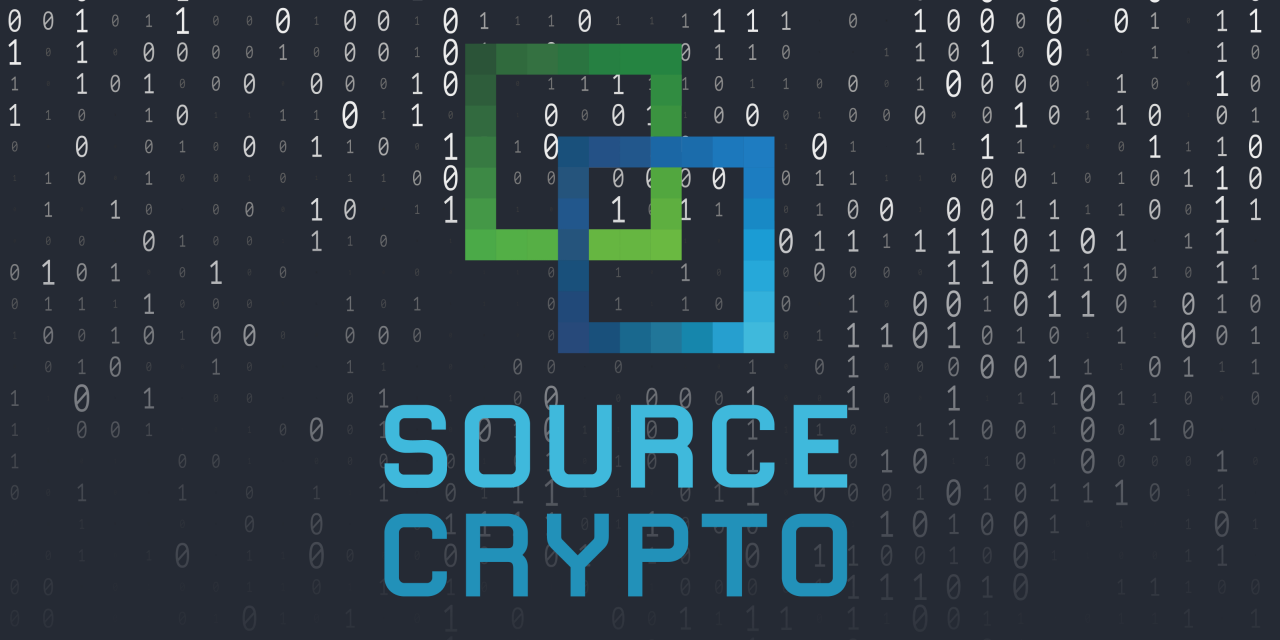History of Permissioned Ledgers
I used this space as prep for writing this article:
Source Crypto
I collect links in the SourceCrypto Discord Server #history channel, and occasionally I export them to this website:
You can expect that page and the discord server to have information that isn’t on this page, as exporting the contents of a discord server is faster than updating each page individually.
Early use, and discussion of “Distributed Ledger”
-
Decentralized Anonymous Credentials
“Our approach builds on recent results in the area of electronic cash and uses techniques — such as […] a distributed transaction ledger” and later they even use the words “distributed ledger” together but informally
-
Innovations in Payment Technologies & Emergence of Digital Currencies—Bank of England
This article argues, however, that the key innovation of digital currencies is the ‘distributed ledger’ which allows a payment system to operate in an entirely decentralised way, without intermediaries such as banks.
- Today I realized that Satoshi Nakamoto’s great invention was the blockchain, not Bitcoin (Dec ‘13)
-
https://www.coindesk.com/top-10-bitcoin-myths-debunked
- https://domsteil.com/2014/12/29/distributed-consensus-protocols/
Monax - Eris
—the first open-source permissioned blockchain
I kinda lost where the following quote came from.. I think it was Preston Byrnes blog.. oops!
I’m into blockchains, having been a founder and former COO of Monax. Monax built the first open-source permissioned blockchain client in 2014. The design has since evolved into the market-leading Hyperledger Burrow permissioned Ethereum blockchain node. Burrow is presently the Hyperledger Project’s only Ethereum Virtual Machine (EVM), and is used by Intel and IBM’s contributions to that project, Sawtooth and Fabric, to run EVMs on those codebases.
-
$100,000 bounty was announced for the creation of a software platform to replace the Bitcoin Foundation, out of concerns over a lack of transparency
-
https://prestonbyrne.com/2014/06/02/project-d/
In response, Casey Kuhlman, Dennis McKinnon and Preston Byrne of Monax led an effort to create the worlds first Decentralized Autonomous Organization
-
https://prestonbyrne.com/2014/10/25/introducing-eris-industries/
- This became Eris Industries, growing into an open-source Distributed Application Software Stack including a distributed application server (Decerver), ErisDB,
They didn’t win the bounty, but their open-source permissionable implementation of the Ethereum Virtual Machine (EVM) was submitted to the Hyperledger Foundation under the name Burrow, and has helped any number of people and organizations experiment with a blockchain virtual machine.
Misc-2015
 Tim Swanson-Permissioned, Permissionless, and Permissioned Permissionless Ledgers—2015
Tim Swanson-Permissioned, Permissionless, and Permissioned Permissionless Ledgers—2015
- An Overlooked Development: Ethereum, IBM ADEPT and the Internet of Things (IoT)
- 19 Crypto 2.0 projects to watch - 2015
-
COST? TRUST? SOMETHING ELSE? WHAT’S THE KILLER-APP FOR BLOCK CHAIN TECHNOLOGY?
- Could decentralized ledgers change the face of accounting?
- https://bitcoinmagazine.com/articles/itbit-hires-former-nydfs-general-counsel-daniel-alter-pushes-ahead-bankchain-project-1441313267/
-
https://www.ofnumbers.com/wp-content/uploads/2015/04/Permissioned-distributed-ledgers.pdf
-
https://prestonbyrne.com/2015/04/19/crypto-2-0-musings-deconstructing-trust/
-
BITCOIN AND BLOCKCHAIN: TWO REVOLUTIONS FOR THE PRICE OF ONE?
-
https://www.ibtimes.co.uk/deloitte-libra-accenture-work-auditors-age-bitcoin-2-0-technology-1515932
-
Nick Szabo: If banks want benefits of blockchains they must go permissionless
“bureaucracies are so heavily invested in the expertise and importance of local regulations and standards that it’s extremely difficult for them to cut the Gordian knot and implement seamless global systems,” said Szabo. “So they keep trying to re-inject points of control, and thus points of vulnerability, into blockchains, e.g. through ‘permissioning’; but this nullifies their main benefits, which come from removing points of vulnerability.”
- Consensys and Microsoft form relationship to deliver enterprise Ethereum Blockchain-as-a-Service (E BaaS) on Microsoft Azure.
Multichain
- Multichain is a Bitcoin based permissioned ledger. (6/15)
Hyperledger
-
The Hyper Ledger Transaction Protocol (HLTP) is protocol designed from the ground up to enable payments for the internet age ‘14
- original Hyperledger, IP later sold to Digital Asset and given to the Hyperledger foundation.
- Linux Foundation unites Industry Leaders to Advance Blockchain Tech 12/2015
Fabric
-
github.com/openblockchain
- The beginning of what became hyperledger fabric
- Hyperledger Announces Production-Ready Hyperledger Fabric 1.0
- hyperledger-fabric-1-0-is-released
Sawtooth
-
https://docs.google.com/document/d/1j7YcGLJH6LkzvWdOYFIt2kpkVlLEmILErXL6t-Ky2zU/edit
-
intel-reveals-its-plan-blockchain-technology-sawtooth-lake-distributed-ledger-2350599
Iroha
-
https://docs.google.com/document/d/1sN-6mv-m85NlbI3ZjwFkDT0izTcxbUaZN9LjLEe045Y/edit
-
https://www.hyperledger.org/blog/2016/11/01/hyperledger-welcomes-iroha
Evernym-Sovrin
Around the same time, Evernym published its initial identity white paper and began its work on [Plenum], an implementation of RBFT consensus, supporting the development of a decentralized public key infrastructure (DPKI).
In September, the open-source Sovrin codebase was donated to the Sovrin Foundation: a private-sector, international non-profit established to govern a global public utility for self-sovereign identity.
Quorum
10/2016, JP Morgan announced their development of Quorum, a permissioned version of Ethereum supporting data privacy to enable interaction between public and private blockchains and allowing for private, secure, peer-to-peer transactions.
- J.P. Morgan Has a New Twist on Blockchain
- say-hello-to-quorum-j-p-morgans-private-blockchain-network
R3 - Corda
11/16, R3 open-sourced Corda, it’s permissioned distributed ledger platform. Corda features private transactions and smart contracts based upon Smart Contract Templates: foundations, design landscape, and research directions, Barclays, University College London.
IBM
- Back on the Chain Gang
- IBM Supports Linux Foundation’s Hyperledger Blockchain as Industry Standard, Plans Deployment
- IBM Director Declares ‘We’re All in on Blockchain’
- Retrospective - The Blockchain Conference 2016
- The Case for a Transaction Fabric for the Internet
Misc-2016
2017
Enterprise Ethereum Alliance
- https://entethalliance.org/enterprise-ethereum-alliance-going-strong/
- https://entethalliance.org/wp-content/uploads/2017/02/EEA.pdfFeb
Wolpert Joins Consensys
- ConsenSys hires IBM blockchain leader John Wolpert and Strate CEO Monica Singer
- TRANSCRIPT: John Wolpert of @ConsenSys talks awesomeness at #Consensus2018 #CoinDeskLIVE
- Public or Private? Blockchain Distinctions Are Falling Out of Fashion
2018
Ethereum for the Enterprise
-
5 Reasons Why Enterprise Ethereum is so much more than a Distributed Ledger Technology

- Stupid about Blockchain
- How I Lost My Faith in Private Blockchains
I could at best claim second...in all things in the last four years @pbrody precedes me.
— John Wolpert (@jwolpert) April 17, 2019
Don't forget @CoinSciences and @compleatang while yall are at who started da fire.
— Ajit Tripathi (@chainyoda) April 19, 2019
Edit this page
Social Share
Twitter Facebook LinkedIn Reddit
Tips Welcome
| Bitcoin | DOGE |
|---|---|
| 1A1DZfw4VgpHCgnMjnmfDnMjddKf8xdYbd | DQKkzfJjqnXUD8Z7C3e84vKzvghPe9dXSa |
 |
 |


